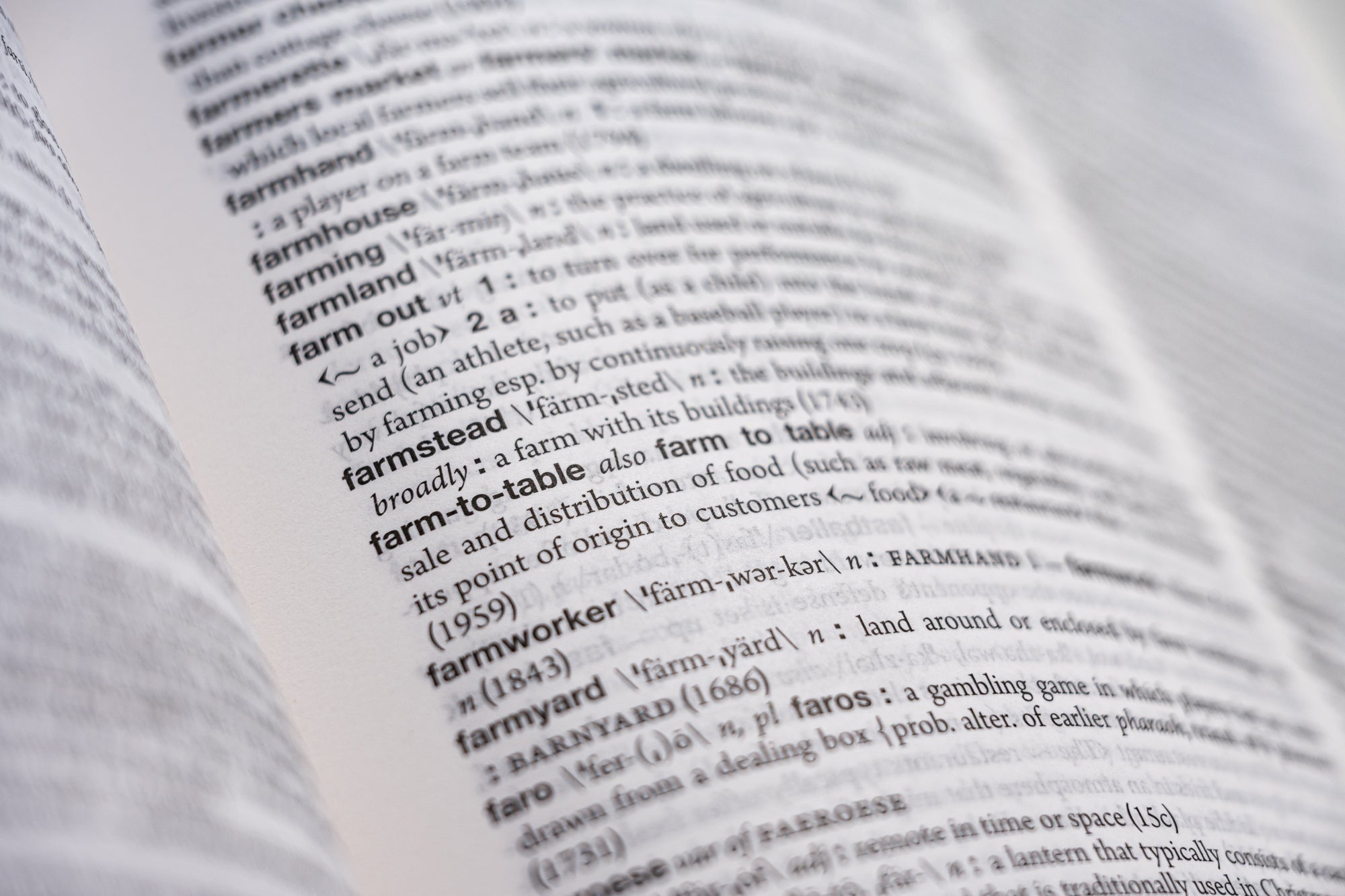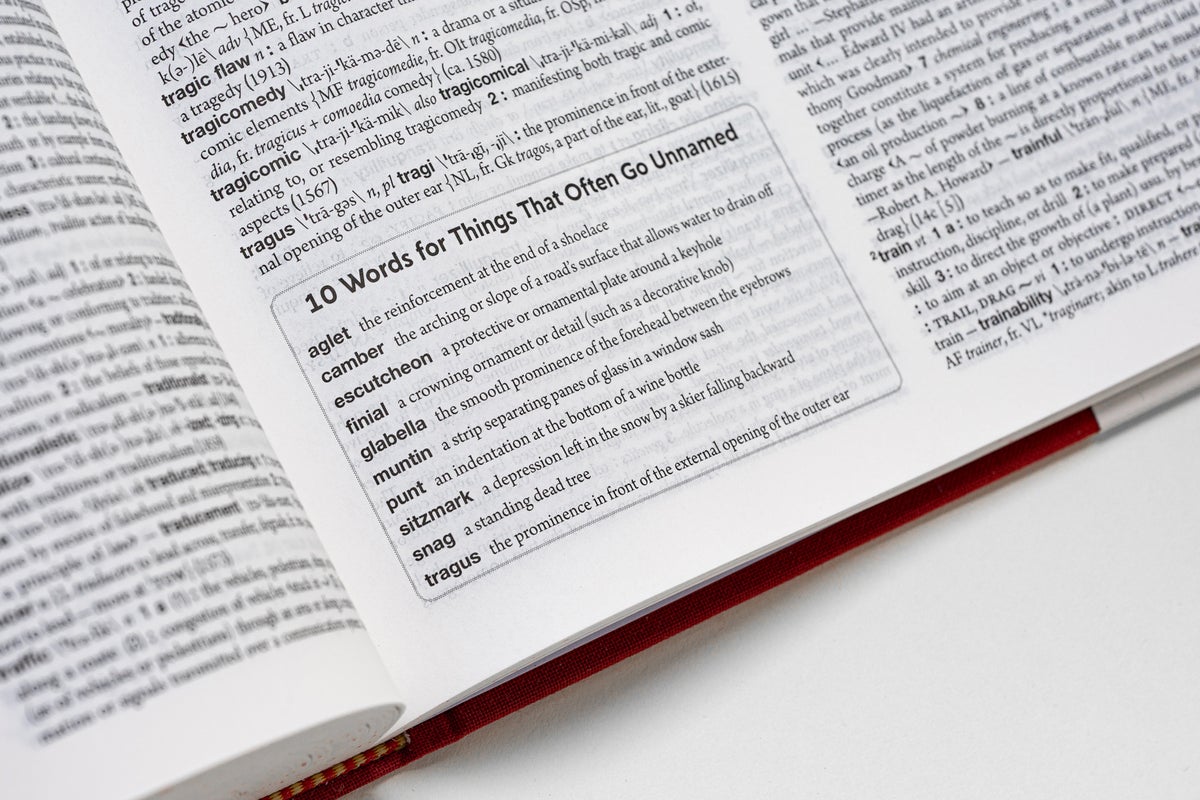Merriam-Webster has unveiled a significant update to one of its most popular dictionaries, introducing more than 5,000 new words in its first hard-copy revision in over two decades.
The 12th edition of Merriam-Webster’s Collegiate Dictionary, set for release on November 18 with pre-orders now open, arrives amidst a reported decline in U.S. sales for traditional print dictionaries.
Among the fresh additions are terms reflecting modern life and technology, such as “petrichor” — the distinct, pleasant scent after rain — and “teraflop,” a unit measuring computer speed.
The dictionary also embraces “dumbphone,” referring to mobile devices predating smartphones, and “ghost kitchen,” commercial spaces hired for food preparation, which gained prominence during the pandemic.
Further entries include contemporary phrases like “cold brew,” “farm-to-table,” “rizz,” “dad bod,” “hard pass,” “adulting,” and “cancel culture.”
Other notable inclusions span “beast mode,” “dashcam,” “doomscroll,” “WFH,” and “side-eye.”

Beyond the new vocabulary, the latest “Collegiate” edition features improved entries for frequently searched words and an additional 20,000 usage examples. All these newly added words are already accessible on Merriam-Webster’s online platform.
The company removed two sections of the “Collegiate’s” 11th edition that had sparse biographical and geographical entries to make room for the new content.
Greg Barlow, Merriam-Webster’s president, said that people no longer use dictionaries to learn such things as the location of Kalamazoo or who Nikolai Rimsky-Korsakov was. For that, they reach for the internet.
(It’s a city in southwest Michigan, for the eternally curious, and he’s a Russian composer who died in 1908.)
Merriam-Webster also eliminated some obscure and antiquated words, including “enwheel,” meaning encircle.
“We wanted to make the ‘Collegiate’ more useful, a better design, more interesting,” Barlow said. “We wanted it to be more rewarding to browse, more fun to look through, and to really be practical for research, but also a beautiful book.”

While Merriam-Webster’s “Collegiate,” originally focused on the needs of college students, is among the top sellers in dictionaries for Barnes & Noble, its general-interest “The Merriam-Webster Dictionary” is more popular. It was last tweaked in 2022. A pocket version is also a strong seller, Kat Sarfas, marketing manager for nonfiction at Barnes & Noble, said.
Death knells for print dictionaries have been ringing since the rise of the internet, said Grant Barrett, a lexicographer, former dictionary editor for Merriam-Webster and others, and co-host of public radio’s A Way with Words.
“Now we’re in this weird limbo where people want the dictionary but they don’t want to pay for it, because they’re used to getting things for free on the internet,” he said.
Merriam-Webster’s website receives about a billion visits a year, making the company a word digital leader as well, Barlow said. Over the last 10 years, revenue overall has grown by nearly 500 per cent on the strength of its online dictionary, thesaurus, mobile apps and word games.
The new “Collegiate” introduces curated word lists, such as words from the 1990s. And it has more word histories. Did you know “calculate” comes from the Latin for “pebble”, because ancient Romans used little stones to do addition and subtraction?
And, for incredibly granular dictionary fans, the new “Collegiate” preserves lettered thumb notches — those little finger-size dents along the edges of reference book pages — to make browsing easier. The only printer doing the notches in the U.S. has closed since Merriam-Webster was last in need, so it had to go to India, Barlow said.


